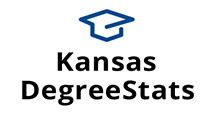Pratt Community College is committed to providing for any member of the College community, a learning and working environment that is free from all forms of discrimination and conduct that can be considered harassing, coercive, or disruptive, including sexual harassment.
Harassment is verbal or physical conduct that denigrates or shows hostility or aversion to a person’s race, color, gender, age, sexual orientation, religion, disability, national origin, political affiliation, veteran status, or other characteristic recognized by that person as important to his/her culture or lifestyle. It is harassment if the conduct also includes one or more of the following:
a. Has the purpose or effect of creating an intimidating, hostile, or offensive working or learning environment;
b. Has the purpose or effect of unreasonably interfering with an individual’s work or study performance;
c. Otherwise adversely affects an individual’s employment or educational opportunities.
Sexual harassment is defined as any unwelcome sexual advances, requests for sexual favors, or other verbal or physical conduct of a sexual nature, when:
a. Submission to such conduct is made either explicitly or implicitly a term or condition of an individual’s employment or educational experience.
b. Submission to or rejection of such conduct is used as the basis for employment or educational decisions affecting that individual.
c. Such conduct has the purpose or effect of unreasonably interfering with an individual’s work performance or educational experience, or creates an intimidating, hostile, or offensive work or educational environment.
A college is a community of learners where strong emphasis is placed on self-awareness and consideration for the lives and feelings of others. While an atmosphere for freedom of expression exists, it must always be in conjunction with a responsibility to observe the rights of one another. In such a setting, there is no place for conduct that diminishes, uses, or abuses another person. For these reasons, harassment of any kind is unacceptable at Pratt Community College.
Anyone who believes that he or she has been the object of harassment should advise the division vice president or the Personnel Director.
Informal procedures exist for dealing with the problem. If appropriate, an attempt will be made to resolve the problem through informal procedures. These discussions will be handled in a professional manner. No formal action on the alleged charge will be taken unless initiated by the complainant.
If informal efforts are unsuccessful, formal procedures exist which allow both parties an opportunity to pursue a resolution. Investigation of a complaint will be conducted in an expeditious manner, assuring release of information only on a need-to-know basis consistent with principles of due process and fundamental fairness as follows:
- The complaint must be in writing with sufficient specificity.
- A person bringing a complaint founded in good faith will suffer no retaliation.
- The person charged will be promptly notified and given an opportunity to respond.
Any individual will have up to 90 days after the alleged occurrence to file a complaint. It must be recognized, however, that a lengthy period of time between an alleged occurrence and an investigation make fact finding extremely difficult or impossible.
If a complaint is found to be valid, the appropriate disciplinary action, consistent with the degree of seriousness of the harassment, will be instituted up to and including termination or dismissal. Discipline or dismissal of a faculty member will follow the procedures outlined in the current collective bargaining agreement.
Sexual harassment in the workplace is prohibited under Title VII of the Civil Rights Act of 1964. Guidelines were issued by the Equal Employment Opportunity Commission in 1980 incorporating sexual harassment in the workplace as a violation of Title VII. Under Title IX of the Educational Amendments Act of 1972, as clarified by the Civil Rights Restoration Act of 1988, sex may not be a basis for exclusion from participation, denial of benefits, or discrimination in any education program or activity.
The failure of managers, supervisors, and others in authority to remedy discriminatory harassment violates institutional policy.
X This replaces policy dated: 08-15-2017, 01-20-2004, 08-20-2001.





